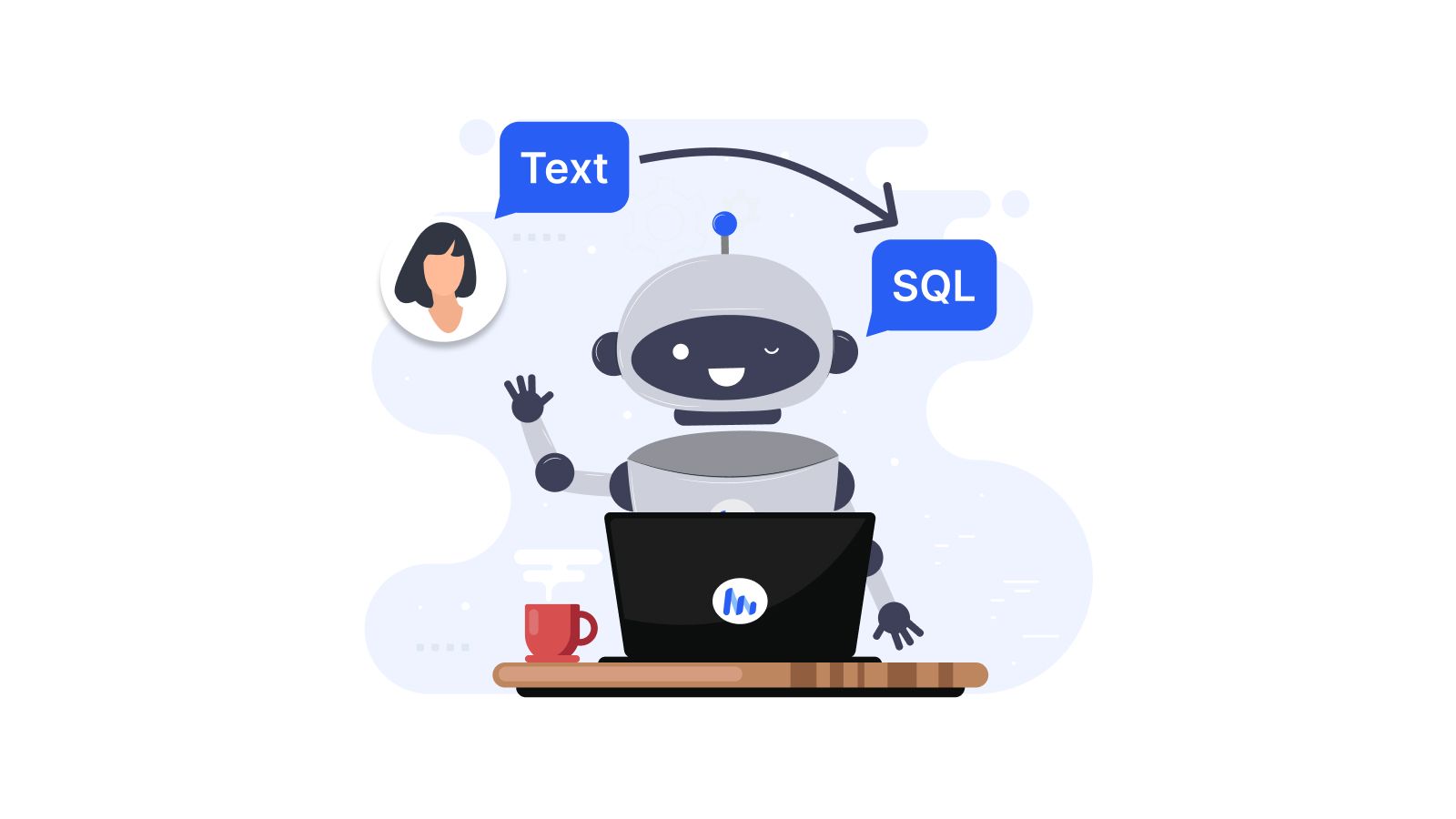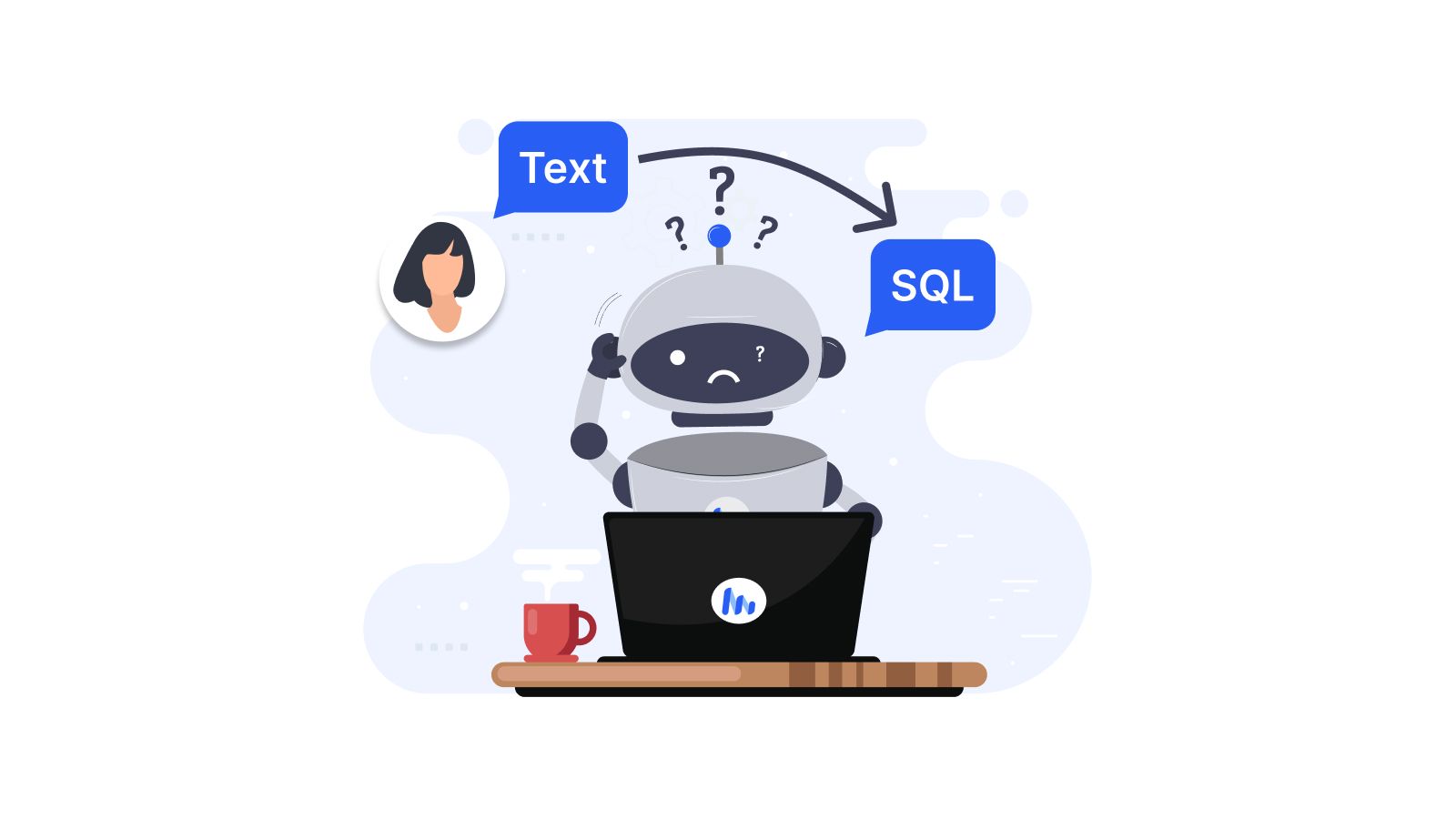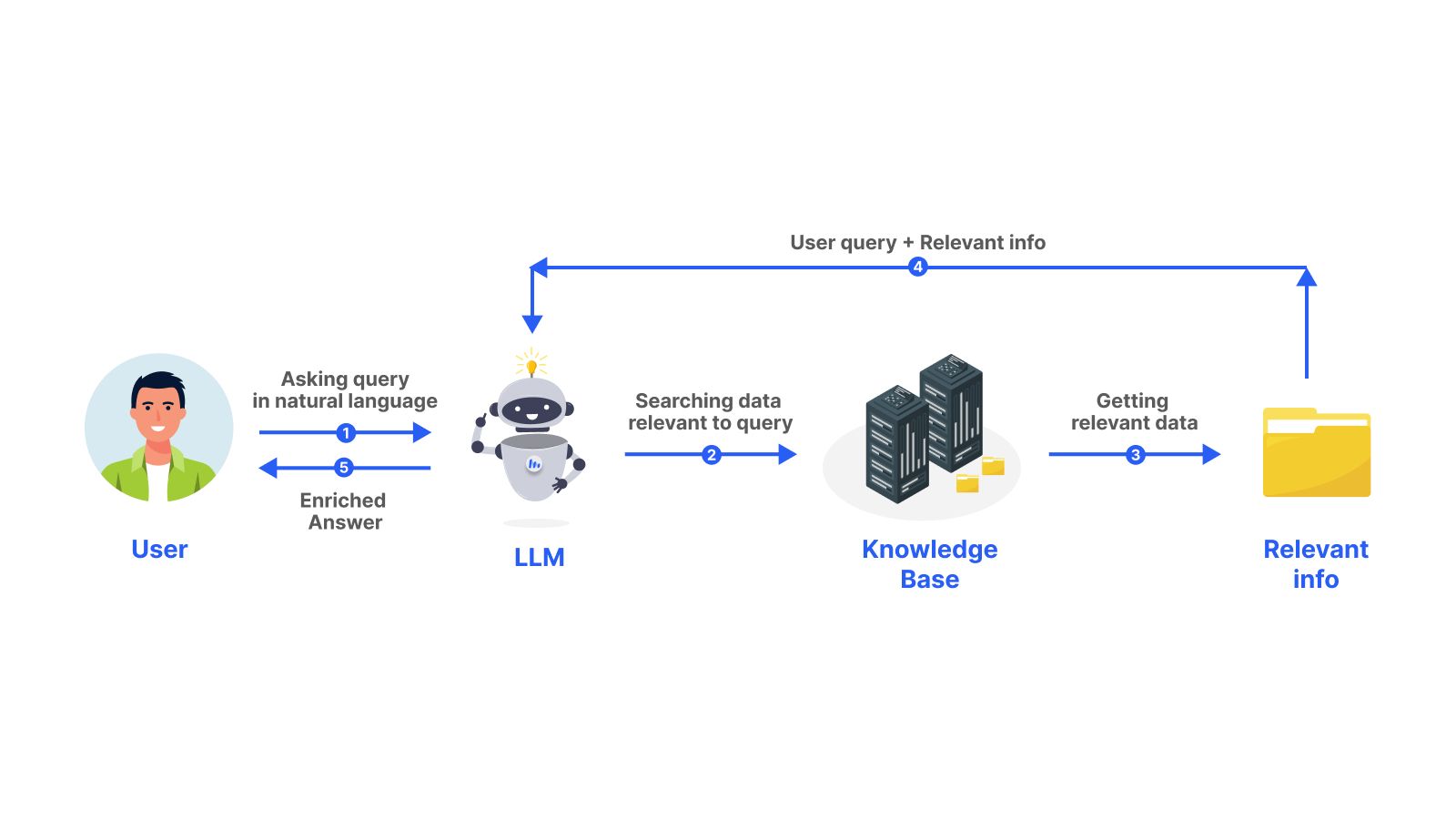Text-to-SQL: The Future of Database Querying
Discover how Text-to-SQL is transforming database querying by enabling natural language interactions, saving time, reducing errors, and democratizing data access.


Nikhil Allamsetti
2024-12-03
In the age of information, data has become an integral part of our lives. From businesses to researchers and even the average person, the need to interact with databases has grown immensely. However, not everyone is well-versed in SQL, the language used to communicate with databases. This is where text-to-SQL comes into play, a revolutionary technology that bridges the gap between natural language and databases.
What is Text-to-SQL?
Text-to-SQL is a technology that allows users to query databases using natural language. This means that users can ask questions about their data in the same way that they would ask a human, without having to learn complex SQL syntax. In the past, only users with specialized knowledge of SQL could query databases. This limited the ability of non-technical users to get insights from their data. But now Text-to-SQL makes databases more accessible to a wider range of users.
Benefits of using Text-to-SQL
There are many benefits to using text-to-SQL, including:
Improved User Experience
Text-to-SQL makes it easier for people to interact with databases, even if they don't know how to code. This is because text-to-SQL allows people to ask questions about their data in plain English, just like they would ask a human. For example, instead of having to learn complex SQL syntax, a user could simply ask "What are the top-selling products in the past month?" and text-to-SQL would automatically generate the correct SQL query.
Time and Cost Efficiency
Text-to-SQL can save people time and money in several ways. First, it eliminates the need for people to learn SQL, which can take a significant amount of time and effort. Second, it can help to automate repetitive tasks, such as generating reports. This can free up people's time so they can focus on more strategic work. Finally, text-to-SQL can reduce the need to hire SQL developers, which can save organizations money.
Error Reduction
Text-to-SQL can help to reduce errors by automatically converting natural language queries into valid SQL queries. This is especially helpful for people who are not familiar with SQL syntax. For example, if a user were to type in the incorrect SQL syntax, text-to-SQL would automatically identify the error and correct it. This can help to ensure that people get the accurate results they need, without having to worry about making mistakes.
Scalability
Text-to-SQL can be scaled to meet the needs of organizations of all sizes. From small businesses to large enterprises, text-to-SQL can help organisations to get more value from their data.
Democratization of Data
Text-to-SQL can help to democratize data within organizations by giving everyone access to data insights, regardless of their technical expertise. This is because text-to-SQL allows people to query databases and generate reports. As a result, more people within an organization can benefit from the insights that data can provide.
Use Cases of Text-to-SQL
Text-to-SQL can be used in a variety of ways, including:
Data Exploration
Text-to-SQL can be used to explore data sets and identify trends and patterns. For example, a data analyst could use text-to-SQL to query a customer database to identify the most popular products or customer segments.
Business Intelligence
Text-to-SQL can be used to generate business intelligence reports and dashboards. For example, a sales manager could use text-to-SQL to generate a report on the top-selling products by region or to generate a dashboard that tracks key sales metrics.
Customer Support
Text-to-SQL can be used to answer customer questions about products and services. For example, a customer support representative could use text-to-SQL to query a product database to find the specifications of a product or to find the status of a customer order. Product Development Text-to-SQL can be used to gather feedback from users and identify new product opportunities. For example, a product manager could use text-to-SQL to query a customer database to identify the most common customer complaints or to find the most requested features.
Automation of Data-driven Tasks
Text-to-SQL can be used to automate a variety of data-driven tasks, such as generating reports, sending alerts, and updating databases. This can save people time and effort, and it can also help to ensure that these tasks are performed consistently and accurately.
LLMATE Platform and Text-to-SQL
LLMATE is a revolutionary platform that empowers businesses to unlock the hidden potential within their campaign data. Utilizing cutting-edge Text-to-SQL technology, LLMATE allows users to effortlessly convert natural language queries into complex SQL commands, extracting valuable insights and generating comprehensive reports with ease.
Imagine being able to ask questions like "Show me the demographic breakdown of my campaign's top performers" or "Create an infographic illustrating the campaign's reach across different age groups." With LLMATE, these queries are instantly translated into actionable SQL code, eliminating the need for technical expertise and democratizing data analysis for everyone.
LLMATE doesn't just provide raw data; it transforms it into readily understandable visualizations and reports. Imagine visualizing your campaign's performance across various demographics, channels, and timeframes with just a few simple phrases. LLMATE automatically generates insightful infographics and reports, saving you valuable time and effort while making information readily accessible to stakeholders.
In conclusion, Text-to-SQL is a remarkable technology that simplifies the interaction between humans and databases. It makes data querying accessible, time-efficient and user-friendly. As the technology continues to evolve, it holds great promise for businesses, educational institutions and individuals looking to harness the power of data without the complexities of SQL.
Related posts
Looking for a marketing purpose analytics tool?
Click HereNewsletter
Website owned by : KAIROS LABS PRIVATE LIMITED, Tonk Phatak Jaipur - 302015, Rajasthan
All Rights Reserved
Email : Support@llmate.ai


